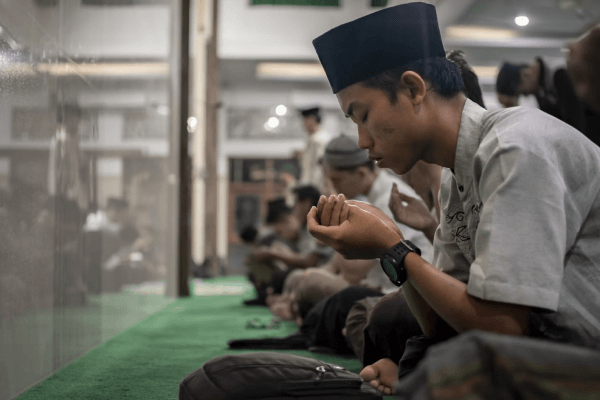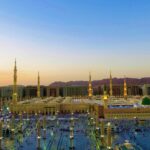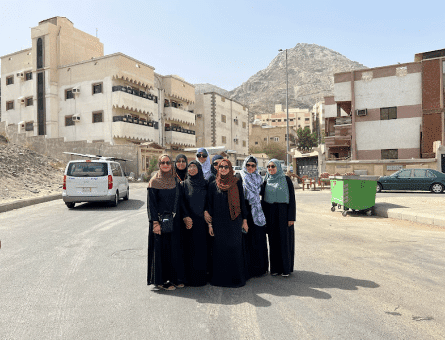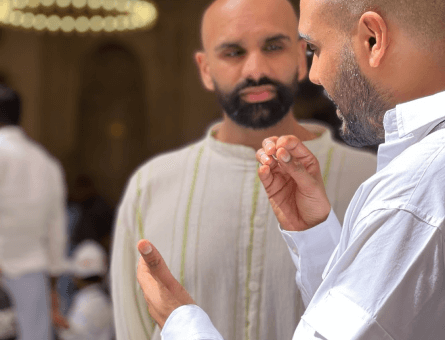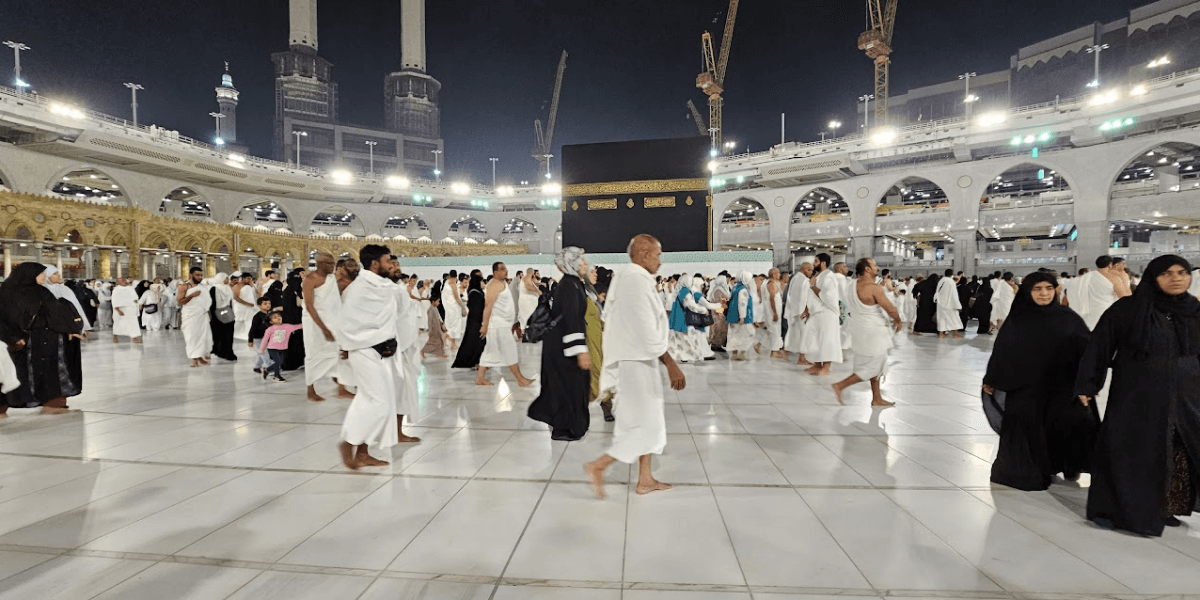Health Tips for Hajj – How to stay healthly during Hajj
 Our bodies have a right over us and our health is an amanah, trust, given to us. Health can even be a great asset on our Hajj, or a great burden affecting your ability to carry out the various rites.
Our bodies have a right over us and our health is an amanah, trust, given to us. Health can even be a great asset on our Hajj, or a great burden affecting your ability to carry out the various rites.
This article will summarise some key health-related points and advice on Hajj preparation, however, we encourage all pilgrims to consult their doctors or relevant medical professionals before making the trip for Hajj. In Makkah, you will be exposed to millions of people from all over the world, different climates, diets, bacteria and immunities.
In order to prepare for this, there are a range of things you can do both before and during your travel.
Before travelling tips
Vaccinations
make sure you are up-to-date on all of your routine vaccinations for diptheria, tetanus, pertussis (dTpa), polio and MMR (measles, mumps and rubella). There is also a requirement for all pilgrims to show proof of immunisation for meningitis.
Pilgrims must have a valid certificate (which you can request from the vaccination clinic) confirming your vaccination for meningitis ACWY (within the last 3 years for polysaccharide vaccines and within the last 8 years for conjugate vaccines).
Your vaccination should also take place at least 10 days before you travel to Saudi Arabia. It is also recommended to take the seasonal and most recent influenza vaccine, especially if you are 65 years or older, pregnant, or have pre-existing medical concerns.
- Seasonal Influenza.
- Pertussis (DTPA).
- MMR (Measles, Mumps, and Rubella)
- Yellow Fever.
- Meningococcal Meningitis.
- COVID-19 Vaccine – Johnson & Johnson, Moderna, Pfizer-BioNTech, and AstraZeneca.
“Shaykh Abdulrahman Al-Sudais, the Chief Imam and Khateeb of Masjid Al-Haram in Makkah, has said that getting vaccinated while fasting will not invalidate the fast.”
In case you think you might need boosters or vaccines, arrange a travel health risk assessment appointment at least 6 to 7 weeks before you travel. Furthermore, pilgrims must submit proof of COVID-19 vaccination and a negative PCR test report three days before the flight.
Last but not the least, pilgrims are also requested to wear a mask and sanitize their hands every once in a while to ensure protection against viral infections and other diseases.
Keep Yourself Physically Fit
From walking around the Holy Kaaba – circumambulating seven times – to running between Safa and Marwa, and spending a night under the open sky in Muzdalifah, you need to be physically fit in order to perform the rituals of Hajj in a righteous way.
Start by making sure you walk at least 30 minutes daily or exercise at least four times a week. You can do this by hiring a physical trainer. Also, watch what you eat and go for a complete medical check-up a week before your Hajj flight.
Shopping
Here is a list of suggested items to pack and bring with you, it is not intended to be exhaustive but rather a recommendation. Do not worry if you forget any of these items as there are numerous pharmacies and stores available in both Makkah and Madinah.
- Regular prescription medication (e.g. insulin for diabetes)
- Vaseline (to avoid chafing)
- Imodium and dioralyte (for upset stomachs)
- Paracetamol, ibuprofen, lemsip (painkillers and for colds)
- Vitamin and energy tablets such as Berocca or Lucozade
- Gaviscon (for indigestion)
- Piriton or other antihistamines (for allergies)
- Optrex (for dry eyes or conjunctivitis)
- Deep heat and Vicks (for muscle pain)
- Strepsils (for sore throats)
- Lib balm (non-scented)
- Antibacterial gel (non-scented)
- Sanitiser (Non-Scented).
- Sunscreen (Non-Scented)
Note that you can easily get these items from any pharmacy or store in Makkah and Madinah as well. Also, do talk to your physician before taking any specific medication.
During Travel
The Health Ministry of Saudi Arabia has recently introduced a virtual medical consultation service that connects pilgrims to medical practitioners. Based on reports by the Saudi Press Agency, the digital doctor will provide services, including disbursing medicines, diagnosis, and inspection.
In case of a medical emergency, the portal will make direct contact with the Seha Virtual Hospital in Riyadh. Here is a list of the safety and health measures that should be adopted during Hajj.
Stay hydrated!
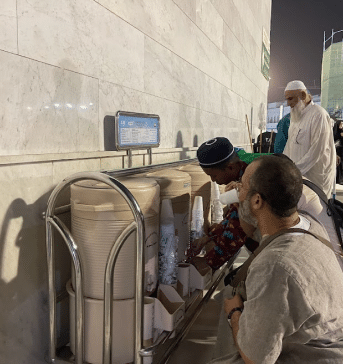 Staying hydrated is the key to staying active during Hajj. Since Hajj usually takes place in the peak summer months of the year, and the temperature is almost always above 40 degrees Celsius, it is advised to drink as much water as possible.
Staying hydrated is the key to staying active during Hajj. Since Hajj usually takes place in the peak summer months of the year, and the temperature is almost always above 40 degrees Celsius, it is advised to drink as much water as possible.
This not only minimises your chance of getting a heat stroke but also keeps you energetic and healthy during the journey. You should ideally consume 10 to 12 glasses of water daily to stay healthy.
Drink water that is sealed or known to have been purified or directly from the Zamzam containers.
With regards to Zamzam, Ibn Abbas reported: The Messenger of Allah, peace and blessings be upon him, said, “The best water on the face of the earth is Zamzam water. In it is food for nourishment and healing for illness.” (al Mu’jam al Kabir 11011).
COVID-19 Protocols
Celebrating two successful COVID-free years, the Government of Saudi Arabia has significantly relaxed the COVID-19 protocols for Hajj.
According to the new guidelines, even though pilgrims are required to wear masks in the sacred cities of Makkah and Madinah, the festival and event organizers have the liberty to mandate masks only if they wish to.
Furthermore, in addition to taking a PCR test 72 hours prior to your flight and carrying a negative test result as proof, pilgrims now have the leverage to have a digital copy of the vaccination certificate on their mobile phones, making the health verification process smoother and more swift.
Sunscreen
We recommend that you always apply sunscreen (non-scented) and try resting in the shade as much as possible during Hajj. Sunscreen will protect your skin and will keep it moisturised, minimising your chances of getting sunburned in the hottest period of the day.
“During the Summer months, the temperatures in Makkah can average around 40 Degrees Celsius, so taking care of oneself is essential and will help one complete the Hajj rituals to the best of their ability”
Hygiene
Another important piece of advice for pilgrims is to wash their hands as frequently as possible, especially before and after using the bathroom, sneezing, coughing, blowing their nose, and eating. In case you have applied an ointment over a wound or a muscle reliever, ensure to wash your hand with soap and water before you come in contact with another person.
However, if you are unable to wash your hands every now and then, we recommend carrying a bottle of hand sanitiser and using it whenever required. Doing so will help you stay healthy during Hajj and reduce the chances of spreading germs.
Food Poisoning
If something doesn’t taste right, do not eat it. During Hajj, you need to be extra careful about what you drink and eat. Diarrhoea is, unfortunately, one of the most common health problems that pilgrims suffer during the sacred journey.
Since pilgrims tend to purchase food from local vendors, there’s a possible chance that they might end up eating something unhealthy, contaminated, or undercooked. This can lead to abdominal cramps, vomiting, nausea, and diarrhoea, resulting in the person feeling weak and even being unable to walk.
The best way to save yourself from food poisoning is to be mindful of your eating habits. Have your meals on time and avoid eating vegetables that smell a bit funny or chicken that still looks a bit pink. Furthermore, ensure to prevent deep-fried or fatty food items. Instead, opt for well-packaged or canned foods as they have a longer shelf-life.
Take Multivitamins
The simplest way to strengthen your body and boost your immune system is to take some multivitamins. In addition to maintaining healthy eating habits, you can also take supplements comprising calcium, magnesium, Vitamin D, Vitamin C, and Vitamin B. These also help in relieving stress and anxiety, making your bones stronger, and relaxing your heart, body, and mind.
Note: However, please consult a doctor before taking any kind of medication.
Clean Shaving Blades
In order to prevent the transmission of HIV, hepatitis C, and hepatitis B, make sure that you (and even the barber) use disposable blades when trimming or shaving your hair and/or beard.
Don’t Overexert Yourself
Performing the rituals of Hajj requires you to walk for miles and carry out various physical activities. Therefore, it is advised to avoid overexerting yourself as it can trigger other health-related concerns.
Cardiac problems such as heart attacks are one of the leading causes of death among pilgrims. So, please take your medicines on time and take short breaks to catch your breath whenever possible. In case you don’t feel good, contact a medical professional right away.
Avoid crowded areas
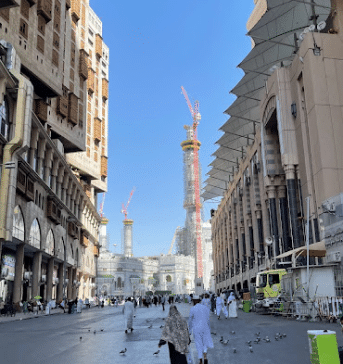 Did you know that, on average, two million people perform Hajj every year? Therefore, try to keep a safe distance from the crowds and avoid performing the rituals during peak hours.
Did you know that, on average, two million people perform Hajj every year? Therefore, try to keep a safe distance from the crowds and avoid performing the rituals during peak hours.
Follow government instructions
While performing Hajj rituals, make sure to follow the instruction signage. This helps in avoiding overcrowding and managing footfall which at times can be fatal.
Always have identification
Life is unpredictable, and anything can happen at any time. Therefore, ensure that you always carry your ID card so the guards can support you in your time of need.
British GPs In Hajj
The British Hajj Delegation have a team of volunteer GPs who are able to provide free consultations and medication to British Hajjis in Mina and Makkah. They plan to have a hotline and pop-up clinic which is expected to be announced soon. In order to stay up-to-date follow them via facebook or on their official website www.britishhajjdelegation.org.uk
These tips and advice are designed to help you avoid health problems during your travel, but should you fall sick then do not despair and remember the following hadith: Narrated Abu Sa`id Al-Khudri and Abu Huraira, The Prophet (ﷺ) said, “No fatigue, nor disease, nor sorrow, nor sadness, nor hurt, nor distress befalls a Muslim, even if it were the prick he receives from a thorn, but that Allah expiates some of his sins for that.” (Sahih Bukhari 5641/5642)
What Are the Physical Challenges of Hajj?
Performing the rituals of Hajj requires a great deal of physical exertion. The combination of scorching heat, dry weather, and a crowd of thousands of pilgrims walking at the same time, often in limited spaces, can be very taxing on your body.
According to experts, those who partake in physical activities or exercise daily will be better equipped to cope with the challenges of the annual pilgrimage. On the other hand, for those with a lazy and unhealthy lifestyle, it is highly recommended to get into shape before you board for Hajj. Here is a list of some common physical challenges of Hajj:
- Depending upon your package, your hotel can be very close or miles away from the Haramain Shareef in Makkah or Madinah. Therefore, you will need to walk to the prayer area five times a day. There’s a high chance that you will also need to climb uphill.
- While performing Tawaf, a pilgrim walks a distance of at least 200 metres every round, which means 1.4 kilometres in total for all seven rounds of Tawaf, and that too while dealing with a crowd. Furthermore, the more crowded the Holy Kaaba is, the more the distance of the Tawaf will be. Hence, you might be walking 400 to 500 metres per Tawaf. So, about 3.5 kilometres altogether.
- During Sai, pilgrims must jog between the hills of Safa and Marwa seven times which is 3.15 kilometres in total and takes up to 30 to 40 minutes.
- Although there’s transportation available, at times, due to traffic, pilgrims are expected to walk from one destination to another, which can take up hours.
Therefore, before you go for Hajj, make sure to walk at least 30 to 40 minutes every day, have a healthy diet, stay hydrated, and pack comfortable shoes, as the last thing you would want is your feet hurting.
Where Do People Sleep During Hajj?
On arriving in Makkah, Saudi Arabia, pilgrims check into a hotel and spend a night comfortably there. While performing the rituals of Hajj, when staying in Mina and the Arafat plains, the pilgrims sleep in a sleeping bag or inflatable air mattress. However, if you do not have a sleeping bag, you can simply purchase a straw Hajji mat from there or rent a tent to rest or sleep in. The tents are strewn with carpets.
Apart from this, you will also notice people sleeping in all sorts of places, such as inside tunnels, under bridges, on the street, and even atop mountains.
While sleeping at Mina and the Arafat are considered quite comfortable, finding a place to rest at Muzdalifah can be troublesome. There are no pre-set tents at Muzdalifah. Therefore, pilgrims are expected to sleep under the open sky. So, if you have a sleeping bag with you, there’s no better time to use it than when spending the night at Muzdalifah.
Health Tips for Hajj – Summary
Health and hygiene play a very significant role in life, especially when it comes to travelling for Hajj. Hajj is the fifth pillar of Islam and comprises rituals that require you to be physically and medically fit.
So, if you are planning to go to Hajj, make sure to follow the aforementioned Hajj health tips in order to maintain physical strength and energy and stay safe and healthy during the annual pilgrimage.
[poll id=”1188″]
Through His Names
New course with
Ustadh Shabbir Hassan




